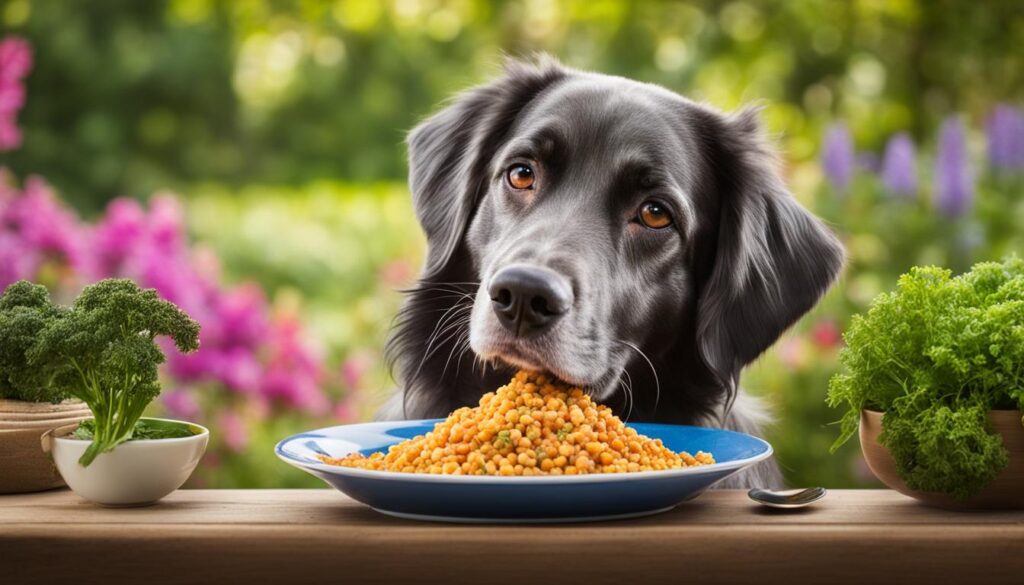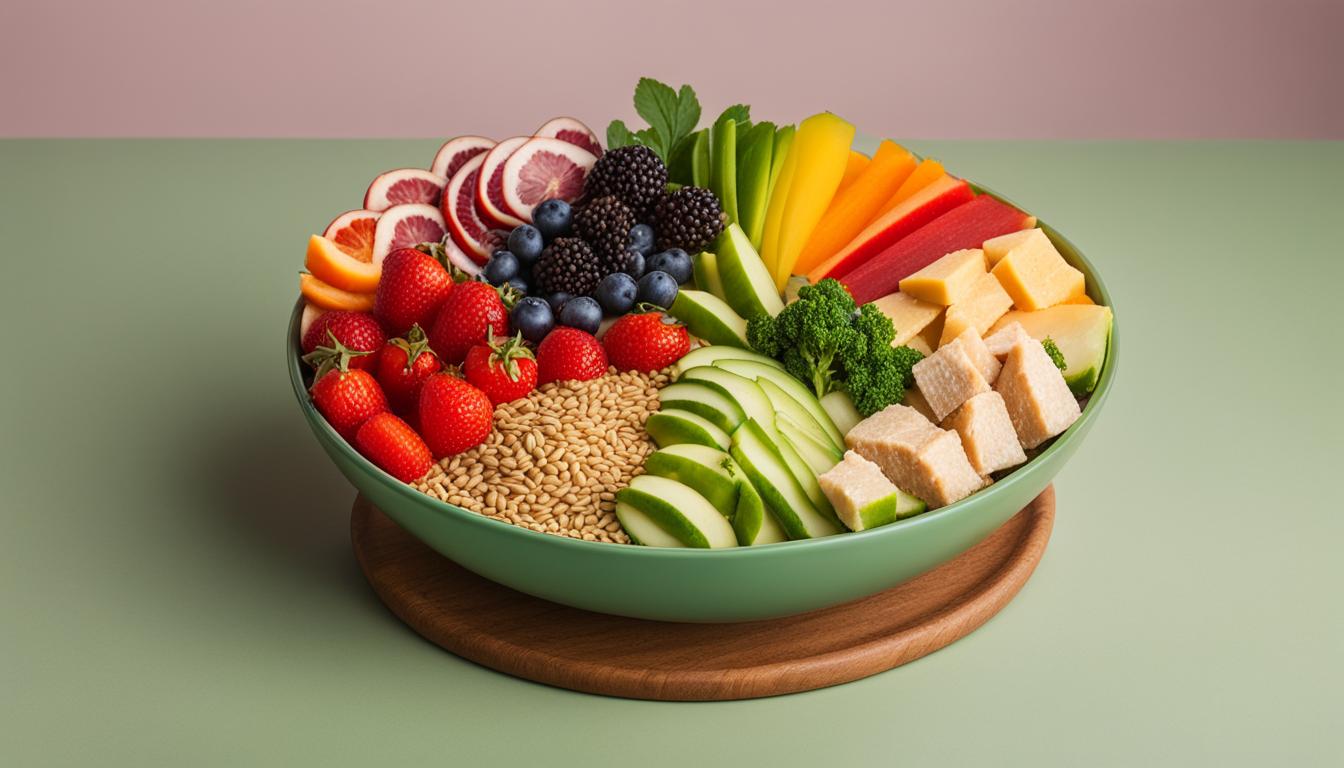The population of mature and senior dogs is increasing, and better nutrition and preventive healthcare have contributed to this trend. As dogs age, they become more vulnerable to medical problems and disease. Cancer, kidney disease, and heart disease are common causes of non-accidental death in dogs. To mitigate the risk of developing these conditions, it is important to make diet adjustments for senior dogs.
Senior dogs are typically considered mature or senior at certain ages depending on their breed and size. It is crucial to consult with a veterinarian before switching to a senior dog food formula and to consider the specific nutrient profile for your dog’s size and health. Controlling calorie intake and avoiding nutrient excesses are key principles in feeding a senior dog. Water intake and hydration are also important for these dogs. The ideal mix of fat, protein, phosphorus, and sodium should be provided in their diet. Treats and snacks should be chosen carefully to ensure they are healthy and balanced. With proper planning and monitoring, senior dogs can have a nutritious and healthy diet that supports their overall wellbeing.
Key Takeaways:
- Senior dogs require diet adjustments to mitigate the risk of developing medical conditions.
- Consulting with a veterinarian is crucial before switching to a senior dog food formula.
- Controlling calorie intake and avoiding nutrient excesses are essential for senior dogs.
- The ideal mix of fat, protein, phosphorus, and sodium should be provided in their diet.
- Choosing healthy and balanced treats and snacks is important for senior dogs.
By paying attention to your senior dog’s weight and making appropriate adjustments to their diet and exercise routine, you can help them maintain a healthy weight and overall well-being. Remember to consult your veterinarian for personalized guidance tailored to your dog’s specific needs. With proper care and attention, your senior dog can enjoy a happy and healthy life!
Protein Requirements for Senior Dogs
As senior dogs age, maintaining their muscle mass becomes increasingly important for their overall health and mobility. Adequate protein intake plays a crucial role in supporting their physical well-being. While there is ongoing debate about the exact amount of protein required for senior dogs, it is widely agreed upon that high-quality protein sources are essential for their optimal nutrition.
When choosing a senior dog food formula, look for those that contain meat, fish, or alternative protein sources like insect protein. These high-quality protein sources provide the necessary amino acids and nutrients to support muscle maintenance and repair. However, it is important to note that dogs with kidney disease should exercise caution with excessive protein consumption, as it may further strain their kidneys.
If you prefer to prepare homemade food for your senior dog, consult with your veterinarian to ensure it is properly balanced and meets their specific nutritional needs. Homemade meals can be a great option for senior dogs, as they allow for more control over the ingredients and can be tailored to your dog’s preferences and sensitivities. Just be sure to include sufficient protein sources and consult with a veterinarian or veterinary nutritionist to ensure a balanced diet.
Protein is an essential component of a senior dog’s diet, as it supports muscle health and overall physical well-being. Whether you choose a high-quality commercial senior dog food or opt for homemade meals, make sure your senior dog’s protein needs are met to help them stay active and vibrant in their golden years.
The Role of Supplements for Senior Dogs
In addition to high-quality protein, supplements can also play a role in supporting the health of senior dogs. However, it is important to consult with your veterinarian before introducing any new supplements into their diet. Your veterinarian can assess your senior dog’s specific needs and recommend appropriate supplements, if necessary.
Supplements such as joint support products, omega-3 fatty acids, and antioxidant blends may help support joint health, cognitive function, and overall vitality in senior dogs. These supplements can be beneficial in conjunction with a balanced diet and regular veterinary care.
Remember, every senior dog is unique, and their nutritional needs may vary. Working closely with your veterinarian will ensure that your senior dog receives the right balance of protein, supplements, and other nutrients to support their overall health and well-being as they age.
Table: Protein Recommendations for Senior Dogs
| Breed Size | Protein Recommendation |
|---|---|
| Small Breed | 18-25% of daily calories |
| Medium Breed | 15-20% of daily calories |
| Large Breed | 12-15% of daily calories |
These recommendations are general guidelines and may vary based on individual factors such as activity level, health conditions, and metabolism. Consult with your veterinarian for personalized protein recommendations for your senior dog.

Digestive Health and Nutrient Absorption for Senior Dogs
As dogs age, their digestive health can be affected, leading to changes in nutrient absorption and gastrointestinal function. This can result in digestive issues, including sensitive stomachs. It’s important to address these issues and provide senior dogs with a diet that supports their digestive health.
Senior Dog Food for Sensitive Stomachs
Senior dogs with sensitive stomachs may experience symptoms such as diarrhea, vomiting, or gas after eating certain foods. To alleviate these symptoms, it’s essential to choose a senior dog food formula that is specifically tailored for dogs with sensitive stomachs. These formulas are designed to be highly digestible and gentle on the stomach, reducing the risk of digestive upset. Look for senior dog foods that contain easily digestible proteins, such as chicken or fish, and avoid ingredients that may trigger digestive issues, such as artificial additives or fillers.
Probiotics for Digestive Health
Probiotics are beneficial bacteria that can support digestive health in senior dogs. They help to restore the natural balance of bacteria in the gut, promote healthy digestion, and strengthen the immune system. Adding a probiotic supplement to your senior dog’s diet can help improve their overall digestive function and reduce symptoms of gastrointestinal distress. Consult with your veterinarian to determine the appropriate probiotic supplement for your dog’s specific needs.
Highly Digestible Diets and Fiber
In addition to probiotics, feeding a highly digestible diet can also benefit senior dogs with digestive issues. These diets are formulated to be easily broken down and absorbed by the digestive system, minimizing the strain on the gastrointestinal tract. Look for senior dog food formulas that contain high-quality proteins and easily digestible carbohydrates, such as sweet potatoes or brown rice.
Fiber is another important component of a senior dog’s diet for digestive health. It helps regulate bowel movements, promotes the growth of beneficial bacteria in the gut, and aids in the absorption of nutrients. Adding a source of fiber, such as pumpkin or psyllium husk, can help support your senior dog’s digestive health.
| Senior Dog Food for Sensitive Stomachs | Probiotics for Digestive Health | Highly Digestible Diets and Fiber |
|---|---|---|
| Choose a senior dog food formula specifically tailored for sensitive stomachs | Add a probiotic supplement to promote healthy digestion and strengthen the immune system | Feed a diet that is easily digestible and contains high-quality proteins and carbohydrates |
| Avoid ingredients that may trigger digestive issues | Consult with your veterinarian to determine the appropriate probiotic supplement | Add a source of fiber, such as pumpkin or psyllium husk, to support digestive health |

“A healthy digestive system is essential for a senior dog’s overall well-being. By providing them with a senior dog food formula that is gentle on their sensitive stomachs, adding probiotics to support their gut health, and feeding a diet that is highly digestible and rich in fiber, you can help ensure that they enjoy optimal digestive function throughout their golden years.”
– Dr. Emily Johnson, DVM
Conclusion
Taking care of a senior dog’s diet is crucial for their optimal health, happiness, and longevity. By making appropriate diet adjustments based on their age, size, and health conditions, you can help mitigate the risk of developing certain diseases and ensure they receive the nutrients they need.
Monitoring your senior dog’s weight and controlling calorie intake are important aspects of their diet. Ensuring they receive enough protein and optimizing their digestive health are also key. Consulting with a veterinarian can provide valuable guidance on their specific nutritional needs.
Choosing high-quality senior dog food formulas or homemade diets can help meet their specific requirements. Additionally, supplements like probiotics and prebiotics can support their overall gut health. By providing a well-balanced and tailored diet, you can help your senior dog live their golden years to the fullest.
FAQ
What changes should I make to my senior dog’s diet?
As dogs age, their nutritional needs change. Adjustments to their diet should include senior dog food formulas and consulting with a veterinarian to ensure the proper nutrient profile for their size and health.
When is a dog considered a senior dog?
The age at which a dog is considered a senior can vary depending on their breed and size. It is best to consult with a veterinarian to determine when your dog reaches senior status.
How do I control calorie intake for my senior dog?
Monitoring your senior dog’s weight and keeping it within a healthy range is crucial. Senior dog food formulas are often less calorie-dense, but it’s important not to underfeed or overfeed. Consult with your veterinarian to determine the appropriate calorie intake for your dog.
What should I consider when it comes to protein requirements for senior dogs?
Adequate protein intake is important for maintaining muscle mass in senior dogs. Choose senior dog food formulas with high-quality protein sources, but be cautious if your dog has kidney disease. Consult with a veterinarian to determine the appropriate protein levels for your dog.
How can I support my senior dog’s digestive health?
Senior dogs may experience changes in their gastrointestinal tract. Providing a highly digestible diet with high-quality protein is recommended. Supplements like prebiotics, probiotics, and postbiotics can also support gut health. Consult with your veterinarian for specific recommendations.





